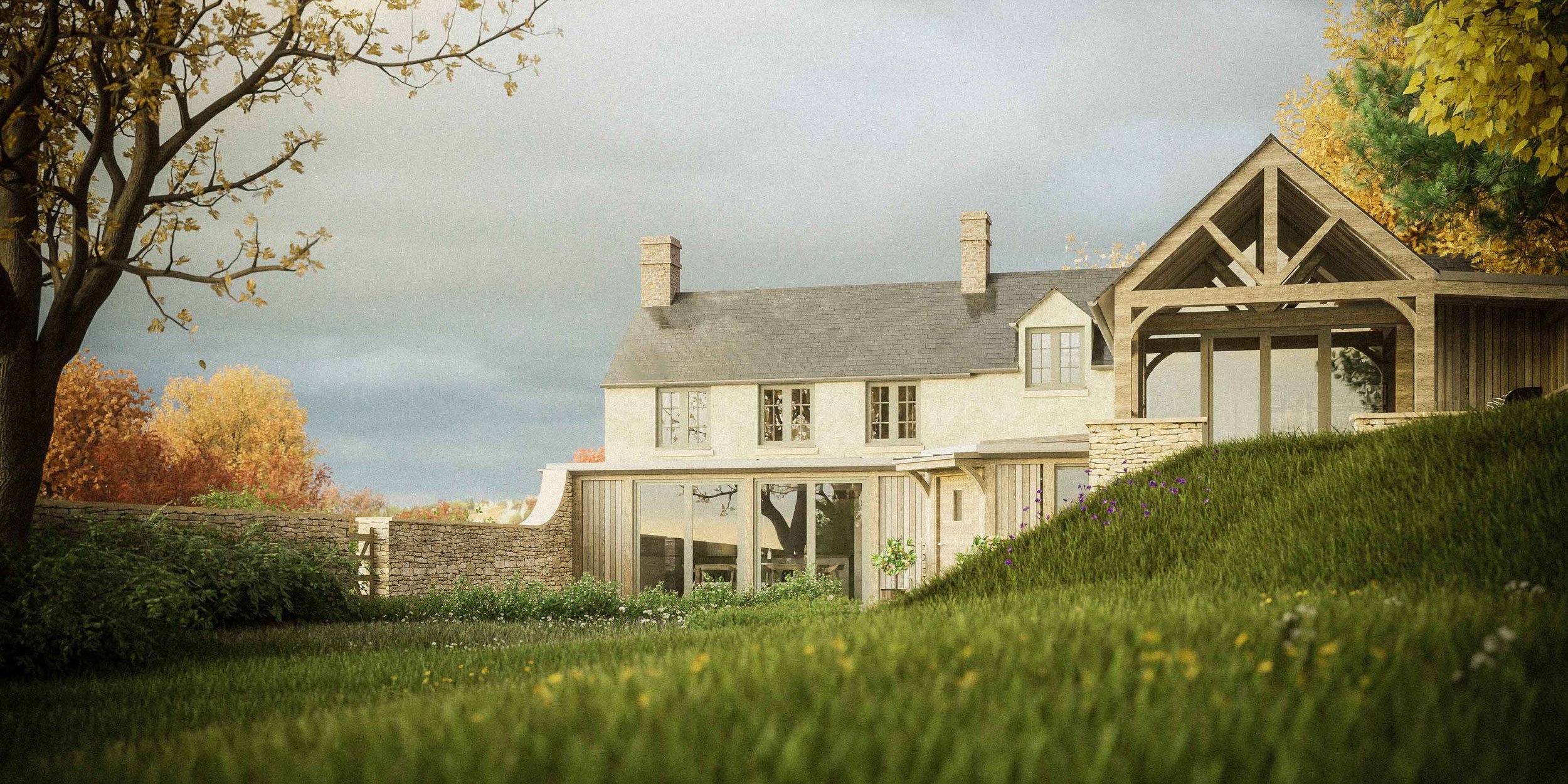
Creative & Sustainable Design for Residential Projects
Joshua Hovey is a RIBA Chartered Architect & Certified Passivhaus Designer, Serving Somerset, Gloucestershire and Surrounding Areas.
Sustainable & Innovative
New-Build
We help self-builders looking to design their dream eco-home, and land owners looking to maximise the potential of their plot. We have a proven track record of securing planning permission within challenging design constraints such as conservation areas, national parks, AONBs and near listed buildings.
Contemporary Extensions
We design beautiful contemporary extensions. Transform your living space by adding natural light, improving the connection with the outdoors and creating harmony between spaces.
Listed and Heritage Property Alterations
Do you have a listed building or period property which lacks natural light, feels disconnected from the outside and has poor flow between living spaces? We are experts at turning period properties into functional homes, customised for modern living.
Sensitively Designed Barn Conversions
We are architects skilled at working with listed buildings such as barn conversions, in conservation areas and AONBs and with complex design constraints. Let us help you to make the best use of your existing building.
Residential Architects | Joshua Hovey Architects
5 Things To Consider When Planning Your Residential Design Project
Defining Your Project Goals
When planning your residential design project, the first thing to consider is defining your project goals. Think about what you want to achieve with your new home—whether it's creating more living space, incorporating sustainable features, or modernizing the layout. Your goals should reflect your lifestyle needs and aesthetic preferences. Clearly outlining these objectives will guide your project and help your residential architect develop a design that meets your vision and functional requirements.
Establishing a Realistic Budget
Setting a realistic budget is crucial for the success of your residential design project. Determine how much you are willing to spend and allocate funds for different aspects of the project, such as construction, materials, and design fees. A residential architect can provide you with a detailed estimate and help you understand the costs involved. Establishing a budget early on helps to avoid financial surprises and ensures that your project stays on track from start to finish.
Selecting the Right Residential Architect
Choosing the right residential architect is one of the most important decisions you will make. Look for an architect with experience in residential design and a portfolio that aligns with your style. Check their credentials, references, and client reviews to ensure they have a proven track record of successful projects. A skilled residential architect will bring your vision to life, offer innovative solutions, and navigate any challenges that arise during the design and construction process.
Understanding Local Regulations and Codes
Familiarizing yourself with local building regulations and codes is essential before starting your residential design project. These regulations can affect various aspects of your design, including the size and height of the building, setbacks, and energy efficiency standards. A residential architect can help you navigate these requirements and ensure that your design complies with all local laws. This step is crucial for obtaining the necessary permits and avoiding potential delays.
Prioritizing Sustainability and Energy Efficiency
Incorporating sustainability and energy efficiency into your residential design project can provide long-term benefits for both the environment and your wallet. Consider features like high-performance insulation, energy-efficient windows, and renewable energy systems such as solar panels. A residential architect can guide you in selecting eco-friendly materials and sustainable design practices that reduce your home’s environmental impact while enhancing comfort and lowering energy costs.
By focusing on these five considerations, you can effectively plan your residential design project. Defining your project goals, establishing a realistic budget, selecting the right residential architect, understanding local regulations, and prioritizing sustainability are all crucial steps in creating a home that is beautiful, functional, and efficient. Working with an experienced residential architect ensures that these considerations are seamlessly integrated into your project, resulting in a home that meets your needs and stands the test of time.









